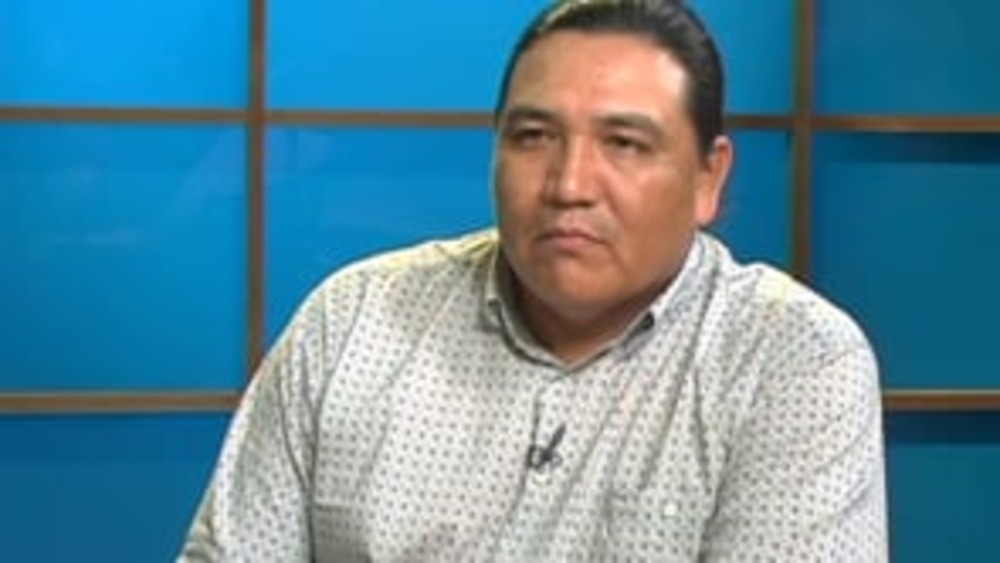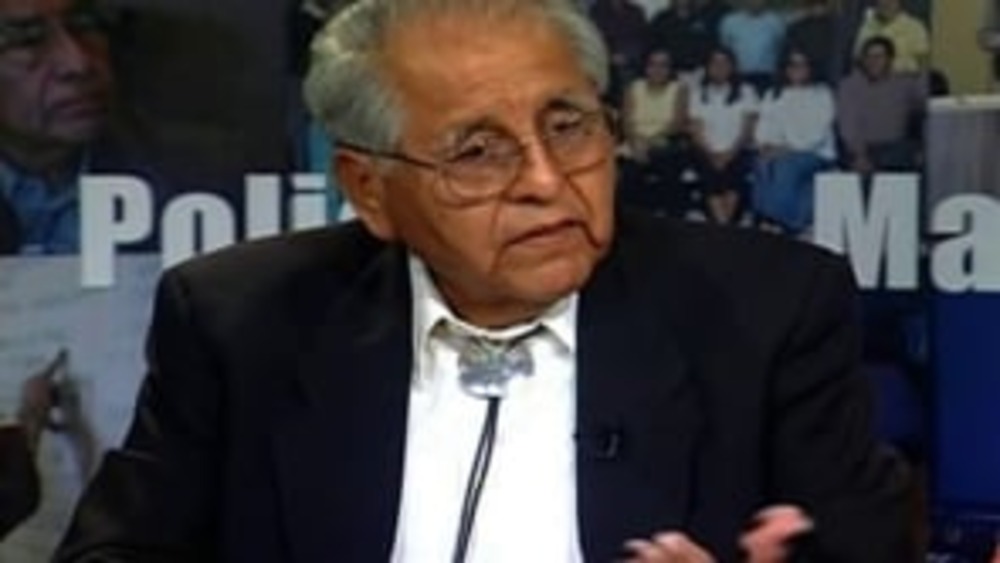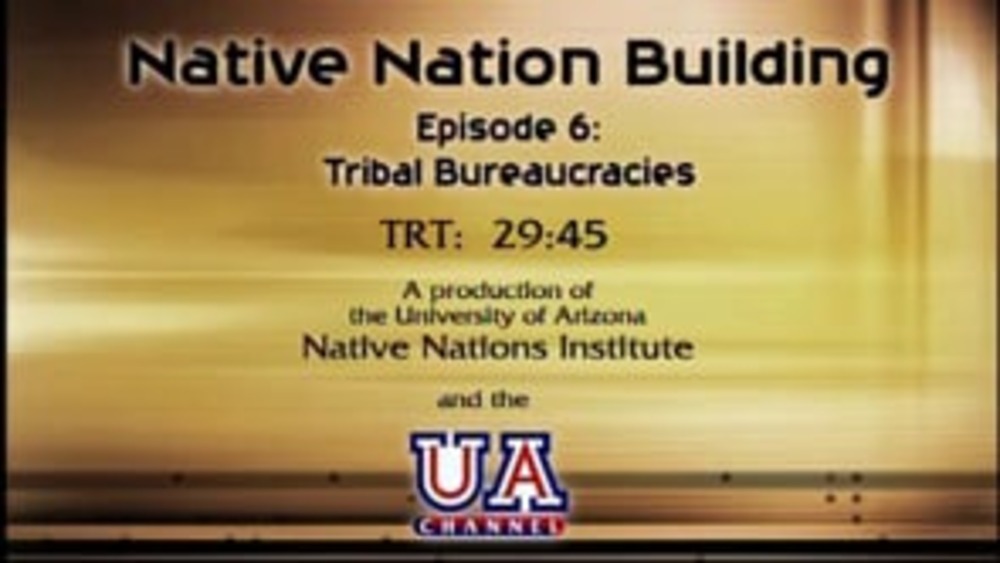Native leaders offer their perspectives on the key characteristics that Native nation bureaucracies need to possess in order to be effective.
Additional Information
Brown, Eddie. "Tribal Service Delivery: Meeting Citizens' Needs" (Episode 7). Native Nation Building television/radio series. Native Nations Institute for Leadership, Management, and Policy and the UA Channel, The University of Arizona. Tucson, Arizona. 2006. Television program.
Ducheneaux, Wayne. Native Nations Institute for Leadership, Management, and Policy, University of Arizona. Spearfish, South Dakota. April 11, 2012. Interview.
LaPlante, Jr., Leroy. Native Nations Institute for Leadership, Management, and Policy, University of Arizona. Tucson, Arizona. August 12, 2010. Interview.
Luarkie, Richard. Native Nations Institute for Leadership, Management, and Policy, University of Arizona. Tucson, Arizona. October 1, 2012. Interview.
Penney, Sam. Native Nations Institute for Leadership, Management, and Policy, University of Arizona. Tucson, Arizona. August 20, 2010. Interview.
Transcript
Leroy LaPlante, Jr.:
"You know, when you have a strategy in terms of where, and a vision of where you want the tribe to be, you know, generations from now, everything works toward that end. And so people -- it does give program managers more focus and it does...but you know, that example being set by elected officials is so critical, 'cause if they're setting that example, then it trickles down to your administrative personnel, it trickles down to your program managers, it trickles down to your tribal employees. That there's this conscientiousness that what we're doing is really for the betterment of the people not just here today, but further down the road."
Sam Penney:
"With most bureaucracies, there needs to be roles and responsibilities, there needs to be clear lines of authority, policies and procedures need to be in place. That can save a lot of time over the long run. I think what was important for our tribe is when we adopted our strategic management plan that goes to all levels throughout the tribe, and that communication/coordination among the tribal departments and programs can always be improved. We are a pretty large entity, and I think that just by simply adopting a strategic management plan that is tribal council-approved goes a long ways in providing the day-to-day direction for your staff."
Wayne Ducheneaux:
"I think it all falls back to a solid policies and procedures, something that...a handbook, a guideline that everybody can look at and distribute equitability amongst everybody. It really helps to have the support of your elected officials when you're carrying out the day to day. That's one of the things that I've found has really been cool about my job is of the 15 tribal council people, I've had every one in my office come in and visit with me, ask for advice. I've asked them for advice and what we need to help keep that going is the trust from elected officials, but a clear policy to follow so we make sure everything's fair."
Eddie Brown:
"It's building a good solid foundation of making sure that you have your regulations in place. When we talk about foster care programs or child welfare programs, they have a lot of rules and regulations and standards to ensure the protection of the child as well as the parents. Those kind of things -- having good regulations in place, hiring competent staff, providing training for those staff, pulling together management information systems that allow them to track and to evaluate the kind of program or the impact of the programs that they're having. I think all of this -- it's a tremendous challenge for an administrator today at a tribal level, because there are so many things that need to be done with limited dollars, and a growing expectation of tribal members toward the tribal council to begin to act in a full essence of what a government is, and that is a government's role is to care for the wellbeing of its citizens."
Richard Luarkie:
"For Laguna, I believe what makes our system work well, our bureaucracy work well is the ability to authorize those that are in decision-making roles -- like directors and supervisors -- to make certain levels of decisions. That way everything is not coming to the governor's office, everything's not coming to the chief of operations, and so when you can begin to build quality staff, great systems, the system will take care of itself and you don't have to sign off on every little document. So having that type of environment in place is very critical and I think definitely helps with the bureaucracy. On the tribal side, same thing with the...on the tribal government side, same scenario where the tribal council has delegated to the governor's office and to our staff officer level certain signing authority so we don't have to take everything into tribal council. As an example, we just had a request for filming. There's a movie that's going to be filmed at Laguna and starring Jennifer Aniston and they wanted to come and film for two days and it was two hours per day. So as opposed to taking that into council, that's something that the governor's office can just sign off on. So it allows the council to focus on the big issues and not have to worry about, do we authorize somebody to come film for two hours and we end up debating that for two hours. So it becomes critical when you can begin to delegate certain responsibilities out and so that helps in our bureaucracy."



